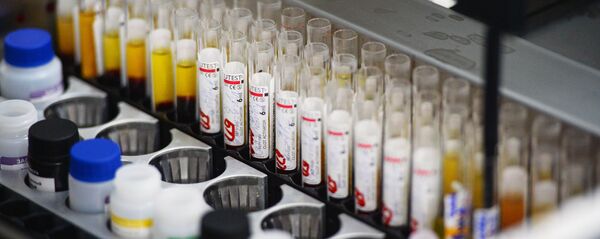The device was created by researchers at Imperial College London and privately held US firm DNA Electronics. A drop of blood is placed on a USB stick, and the resulting acidity levels are analyzed. The information is then converted into a data which can be sent to a computer or other device.
"We have developed a novel complementary metal-oxide semiconductor (CMOS) chip based, pH-mediated, point-of-care HIV-1 viral load monitoring assay that simultaneously amplifies and detects HIV-1 RNA," the study details.
According to the article, some 39 million individuals infected with HIV-1 live in sub-Saharan Africa, in countries with poorly-developed healthcare infrastructure. Meanwhile, "regular monitoring is required to ensure effective therapy and detect treatment failure as early as possible in order to minimize the emergence of drug resistant virus," the authors say.
The latest study tested 991 blood samples with 95 percent accuracy. Results were produced within about 21 minutes. The method is said to be able to work "on a USB compatible stick without the need for additional power supply, labelling or fluorescence detection and with the potential for operation without a desktop platform."
Though the technology is new, it "shows great potential as a route to a point of care diagnostic suitable for use in clinical settings without access to a laboratory infrastructure," researchers stated.

